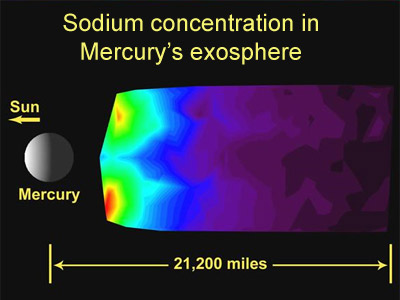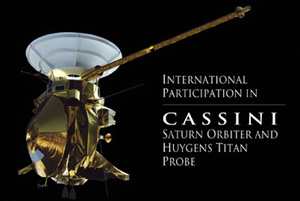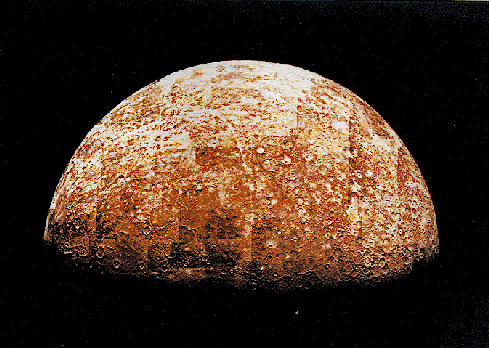MESSENGER will give us much better images of Mercury than this one!
Click on image for full size
Courtesy of NASA
MESSENGER
Do you know what MESSENGER stands for? It's the MErcury Surface Space ENvironment, GEochemistry Ranging mission! What does this mean? Well, the spacecraft will study Mercury's atmosphere, crust and polar caps.
MESSENGER is just getting started-- it won't be launched until 2004. The probe will start orbiting Mercury in 2009. The last time a probe went to Mercury was in 1975, and that was Mariner 10!
You might also be interested in:

Mercury has almost no atmosphere. The planet's small size means that its gravity is too weak to hold down a normal atmosphere. There is a very thin atmosphere around the planet. Mercury's thin atmosphere
...more
Cassini is the name of a robot spacecraft. Cassini is studying the planet Saturn. It is also studying many of Saturn's moons and Saturn's cool rings. Cassini blasted off from Earth in 1997. It took Cassini
...more
Do you know what MESSENGER stands for? It's the MErcury Surface Space ENvironment, GEochemistry Ranging mission! What does this mean? Well, the spacecraft will study Mercury's atmosphere, crust and polar
...more










